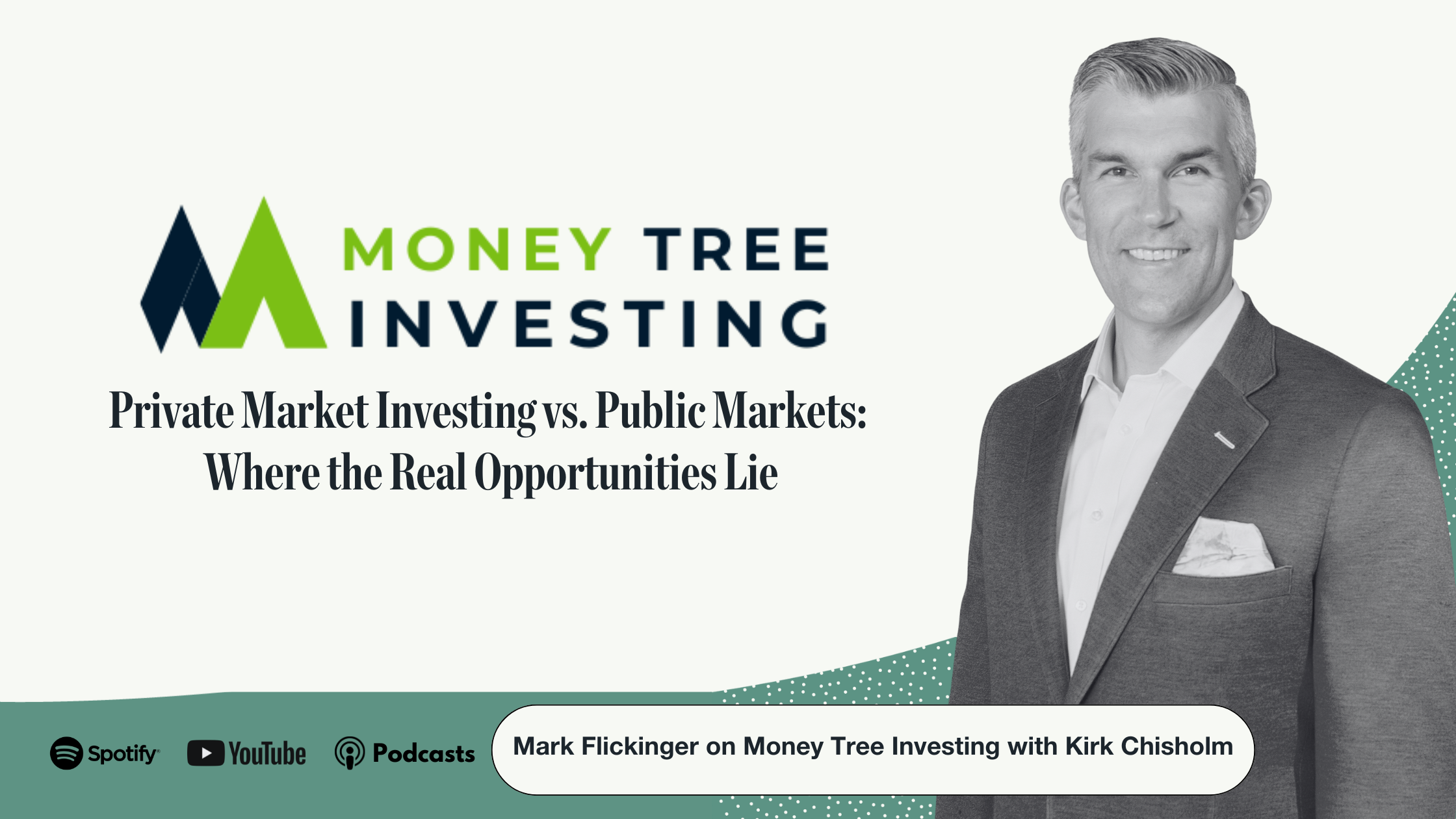Mark Flickinger joined BIP Wealth's Nolan Alexander and Jeremy Hermida on this episode of Ahead in the Count to discuss the private market and how Evergreen funds are opening access for investors.
The private markets have continued to mature, particularly since the Dodd-Frank regulations in 2010. Today, they offer a depth of opportunity for investors that doesn't exist in the public markets. As a result, individual investors seeking higher returns, alignment with their risk tolerance, and diversification are integrating more private market funds into their portfolios.
For the private markets, 2024 has been a pivotal year. The cheap money environment that defined the Covid era has dried up, and valuations have returned to earth. As things have calmed down over the past two years, venture investors have operated cautiously. One in five venture investors who were active in 2022 did not make a single deal in 2023. The hiatus was the result of factors including capital protection and fundraising challenges.
Venture investor sentiment is returning to pre-pandemic trends, signaling positive momentum toward a healthier investment environment and steady, rational growth reminiscent of pre-pandemic years. Market participation and competitive deals are increasing, and investors are returning (cautiously) to the market to seize opportunities at more rational prices. The return of deal activity and capital deployment indicates a robust and recovering market, but the private market's enduring health will depend on factors like liquidity events such as mergers, acquisitions, and IPOs.
Innovative Private Market Investment Vehicles
While the private market offers tremendous opportunities and benefits for investors, it also has downsides. In particular, many private market alternative funds involve limited liquidity and higher risk compared with public market stocks and bonds. This is where assets like Evergreen equity and debt funds come in. The flexibility and accessibility of these structures are giving enormous numbers of accredited ways to align their investment and wealth goals.
Evergreen funds offer a flexible, continuous investment model without a fixed end date. The structure allows for consistent capital deployment, aligning the interests of investors and fund managers. Unlike traditional closed-end (RegD) funds, Evergreen funds are built to adapt to market conditions and provide a sustainable, long-term approach to investing. By providing lower entry barriers, quarterly closes, and greater accessibility, these funds are suitable for a broader range of investors. They also allow investors to manage their portfolios more dynamically, adjusting their investments based on real-time market conditions.
A Shift to a Private Market Investment Platform
During the podcast, Mark explained the firm's evolution to BIP Capital, which positions the firm as a holistic platform for private equity and private credit strategies. As such, BIP Capital is positioned to provide traditional venture capital RegD funds through BIP Ventures, a private equity BDC called the BIP Ventures Evergreen BDC, and a private credit fund called LAGO Evergreen Credit. The structure and branding of the BIP Capital platform help investors distinguish between equity and credit opportunities, ensuring they can make well-informed investment decisions that align with their wealth preservation and growth goals.
Listen to the full episode of the BIP Wealth podcast Ahead in the Count.

.png)




